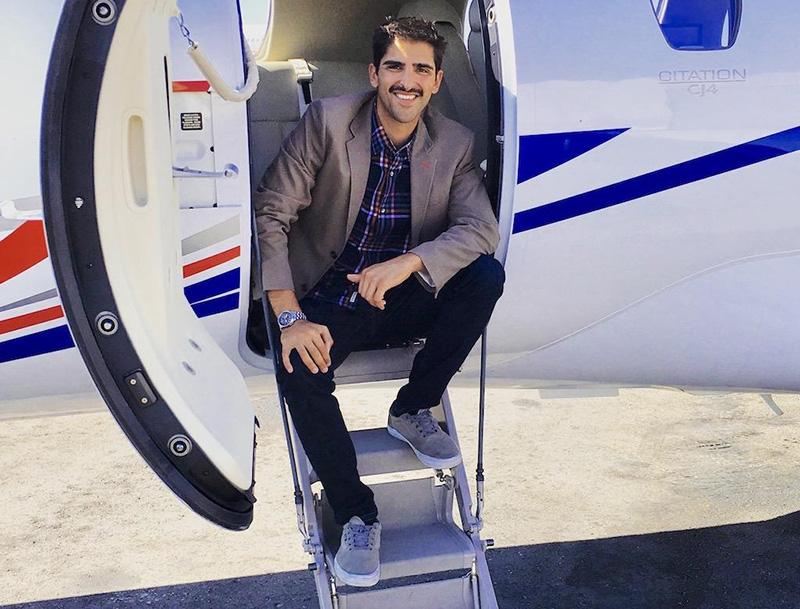
Gavin Woodman, co-founder of aircraft brokerage and aviation services company Aerocor.
Founded in 2017, Henderson, Nevada-based Aerocor began as an aircraft brokerage focused on serving owner operators. It has since grown to become a full-service aviation company; its portfolio of products includes aircraft selection and acquisition support, flight training and more recently, aircraft management. BCA spoke with Aerocor Co-Founder Gavin Woodman about the company’s 2023 sales and the state of the market.
Aerocor completed 35 aircraft sales in 2023, covering very light through midsize business jets. How does this compare with previous years, and what are the prospects for 2024?
It was a good year for us. It was a slight decrease in sales volume from the year prior—about a 14% decline. But that kind of matches the overall market. If you look at jet transactions for North America, comparing 2023 to 2022, there was about a 13% decrease, so we’re basically tracking the marketplace.
Nothing compares to 2021. That was by far our biggest year; I think we sold 75 aircraft. That year, the Eclipse was really on fire as was the entire market, and so we benefited. Now, because of where prices are and some of the other factors that come into play, the marketplace has slowed tremendously. Last year was more in line with 2019 figures, pre-Covid.
There are 285 Eclipse very light jets in service. How active is the market for the Eclipse 500, and do you see it being influenced by new sales of the Eclipse Aerospace 550?
The market has been very consistent. We see typically between 30-40 planes being sold in a given year. We expect that to continue.
The 550 is actually not currently being built or sold, so we don’t really expect that to impact pre-owned sales in any way. You might have seen an announcement that two 550s were sold last year. Basically, [there were] two planes on the assembly line and they sold them to the owner of the company [AML Global], so it’s an internal sale. That’s been a big driver of some of the demand. Now the retail buyer is competing with the ownership for inventory because the owner has a charter company and their goal is to utilize these airplanes in their own air-taxi model. They’ve gobbled up quite a few airplanes and that’s reduced the available supply to the retail marketplace.
The 550 and the 500 are identical from a performance standpoint. It’s really the marketing for an aircraft that was built since the restart. Production [of the 500] ended and then it restarted in 2013 and it came back as a 550. There’s fit-and-finish trim changes to the aircraft, but then it’s an avionics capability, and those capabilities are retrofittable into previous iterations.
What are the attributes light jet owner-operators desire most in terms of cost, performance or other factors?
Cost, performance, service and support—that was something that had a significant drag on this space, the uncertainty associated with the future of [Eclipse] during the two turnovers. But ever since the current ownership has been in place, there’s no question. … Any of the parts availability issues that were around in the past have kind of evaporated.
[Another] one is operational characteristics. These are first-time turbine aircraft operators. Most of them don’t even have their multi-engine rating when they come from Cirruses and things like that. That’s what Cirrus has been so good at, is presenting the aircraft in a non-threatening way so that people know they can fly it.
That’s also where the Eclipse really shines because it’s so easy to fly. It’s easier to fly than most pistons because you don’t have to worry about engine management. The engines are so close-in to the center of gravity, there’s no critical engine and no V1 cuts. Basically, if you were to get your multi in the Eclipse, you would have a centerline thrust limitation.
Last year, Aerocor sold its first helicopter, a twin-engine Eurocopter BO-105CB. Was this to a private or public operator? What trends do you see in light helicopter sales going forward?
We have a client who was interested in purchasing a helicopter and this opportunity presented itself and we partnered with them on the purchase. In terms of our service and support for helicopters, it’s really at this point geared at one-offs, if we have a client that desires one.
Aerocor launched an aircraft management division, Aircraft Management Solutions (AMS), in 2023. Why did the company decide to get involved in aircraft management?
It falls in line with our desire to provide value around the entire ownership cycle. We’re no longer just an aircraft brokerage, we want to be there with people step by step.
There are two sides of our aircraft management program. One is a traditional management program for corporate operators. We have a Sovereign, we have a Hawker, and we’re going to continue to grow that aspect of a full turnkey, concierge program with an emphasis on using data to make more informed decisions.
Both my brother [AMS President Garrett Woodman] and I have an airline background. I also have an MBA and an economics background and I’m a firm believer from what I’ve seen in the airline industry that there is a fundamental difference in the way the airlines do things that has a significant impact compared to corporate aviation. The main reason is that they own the cost. None of the management companies own the cost. Now, I can’t change that, but I can try to solve the problem.
We have clients who have Gulfstreams that are managed by these companies. The first example that comes to mind, but it’s one of a million: there is a simple hole that you could drill in the bottom of the reverser on the GIVs to drain water so that you don’t get corrosion. To me, it’s a no-brainer that 100% of the fleet would do that because it’s a simple solution to a very expensive problem. That’s the goal on the traditional management product, to try and incorporate some of the things that we’ve learned operating at airlines to improve the process and be more efficient and cost-effective.
Then there is also the light jet and the owner-operator space. That, once again, is an area where there is an opportunity to provide value because there is no program that is geared toward these people. They don’t need a traditional management program.
The areas where they struggle and they could use help revolve around areas like accounting. We’ve been getting a tremendous amount of positive feedback from our clients to provide a product where it’s a single monthly invoice, a single-payer system. We take care of everything from FBO fees and fuel to training and databases and hotels, and they have just one thing to pay.
This is something that no one is providing as a standalone product and our clients are really excited to have something. Our goal is to simplify the process as much as we can.





